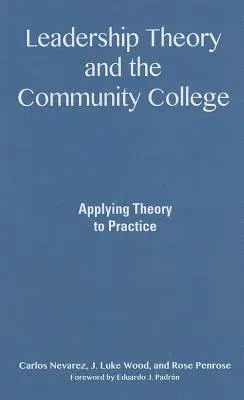This book presents leaders and aspiring leaders in community colleges
with a theoretical and practical framework for analyzing their
leadership styles, and determining the dimensions of leadership they
need to improve in order to strengthen their capacity to resolve complex
issues and effectively guide their institutions.
It does so through presenting theories about leadership that are
congruent with the notions of equity, access, diversity, ethics,
critical inquiry, transformational change, and social justice that drive
the missions of community colleges, and at the same time provides the
reader with the strategic skills to prepare for and navigate the
profound changes ahead.
Readers will gain an understanding of how to use theory as a tool to
guide their practice, better understand the intricacies of the issues
confronting them, the power dynamics and organizational context in which
they operate, predict potential outcomes, and develop processes to
achieve desired outcomes. Utilizing theory in conjunction with case
study analysis provides community college leaders with the tools needed
to comprehensively interrogate and inform decision-making processes.
The authors provide a number of rich and realistically complex case
studies, all of which are situated in a community college environment,
to which readers can apply the various theories and perspectives,
develop their view about the principles and actions most likely to lead
to satisfactory outcomes, and hone the approaches to leadership that are
authentic to them, and effective.
The authors aim to help readers develop the multi-faceted approach to
leadership that is essential to running complex organizations. They aim
to promote development of the "whole" leader through a three-fold
framework of theory, practice, and introspection in context of
institutional change. In doing so, leaders will be better equipped to
lead community colleges in challenging times.
The authors tie AACC's competencies to the leadership theories they
cover, as well as to the analysis of the case studies, and leadership
inventories, as an essential framework for developing the skill sets to
enact the community college mission.
The book is suitable for personal reading and reflection, institutional
leadership retreats and training, and as a text for higher education
courses.

